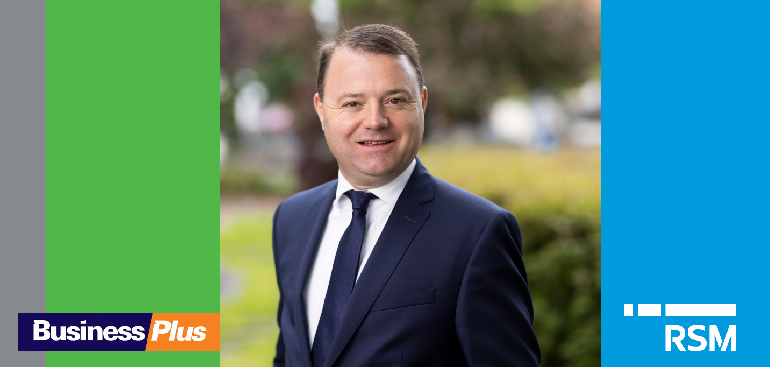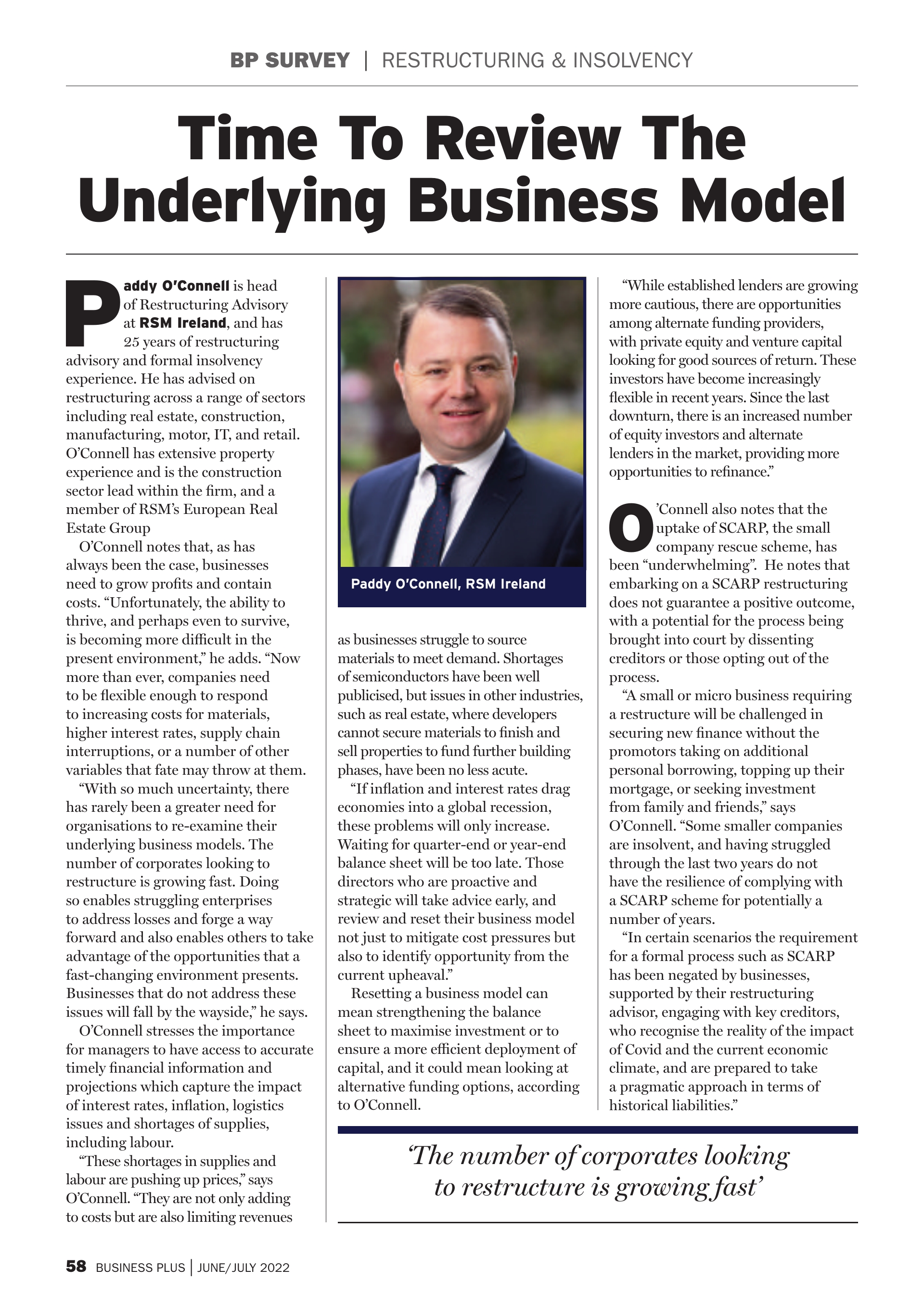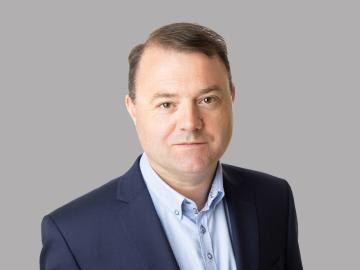
As published in Business plus.
Paddy O’Connell is head of Restructuring Advisory at RSM Ireland, and has 25 years of restructuring advisory and formal insolvency experience. He has advised on restructuring across a range of sectors including real estate, construction, manufacturing, motor, IT, and retail. O’Connell has extensive property experience and is the construction sector lead within the firm, and a member of RSM’s European Real Estate Group.
O’Connell notes that, as has always been the case, businesses need to grow profits and contain costs. “Unfortunately, the ability to thrive, and perhaps even to survive, is becoming more difficult in the present environment,” he adds. “Now more than ever, companies need to be flexible enough to respond to increasing costs for materials, higher interest rates, supply chain interruptions, or a number of other variables that fate may throw at them.
“With so much uncertainty, there has rarely been a greater need for organisations to re-examine their underlying business models. The number of corporates looking to restructure is growing fast. Doing so enables struggling enterprises to address losses and forge a way forward and also enables others to take advantage of the opportunities that a fast-changing environment presents. Businesses that do not address these issues will fall by the wayside,” he says.
O’Connell stresses the importance for managers to have access to accurate timely financial information and projections which capture the impact of interest rates, inflation, logistics issues and shortages of supplies, including labour.
These shortages in supplies and labour are pushing up prices,” says O’Connell. “They are not only adding to costs but are also limiting revenues as businesses struggle to source materials to meet demand. Shortages of semiconductors have been well publicised, but issues in other industries, such as real estate, where developers cannot secure materials to finish and sell properties to fund further building phases, have been no less acute.
“If inflation and interest rates drag economies into a global recession, these problems will only increase. Waiting for quarter-end or year-end balance sheet will be too late. Those directors who are proactive and strategic will take advice early, and review and reset their business model not just to mitigate cost pressures but also to identify opportunity from the current upheaval.” Resetting a business model can mean strengthening the balance sheet to maximise investment or to ensure a more efficient deployment of capital, and it could mean looking at alternative funding options, according to O’Connell.
“While established lenders are growing more cautious, there are opportunities among alternate funding providers, with private equity and venture capital looking for good sources of return. These investors have become increasingly flexible in recent years. Since the last downturn, there is an increased number of equity investors and alternate lenders in the market, providing more opportunities to refinance.
O’Connell also notes that the uptake of SCARP, the small company rescue scheme, has been “underwhelming”. He notes that embarking on a SCARP restructuring does not guarantee a positive outcome, with a potential for the process being brought into court by dissenting creditors or those opting out of the process.
“A small or micro business requiring a restructure will be challenged in securing new finance without the promotors taking on additional personal borrowing, topping up their mortgage, or seeking investment from family and friends,” says O’Connell. “Some smaller companies are insolvent, and having struggled through the last two years do not have the resilience of complying with a SCARP scheme for potentially a number of years.
“In certain scenarios the requirement for a formal process such as SCARP has been negated by businesses, supported by their restructuring advisor, engaging with key creditors, who recognise the reality of the impact of Covid and the current economic climate, and are prepared to take a pragmatic approach in terms of historical liabilities.”
‘The number of corporates looking to restructure is growing fast'
As seen in the Business Plus, June 2022.


